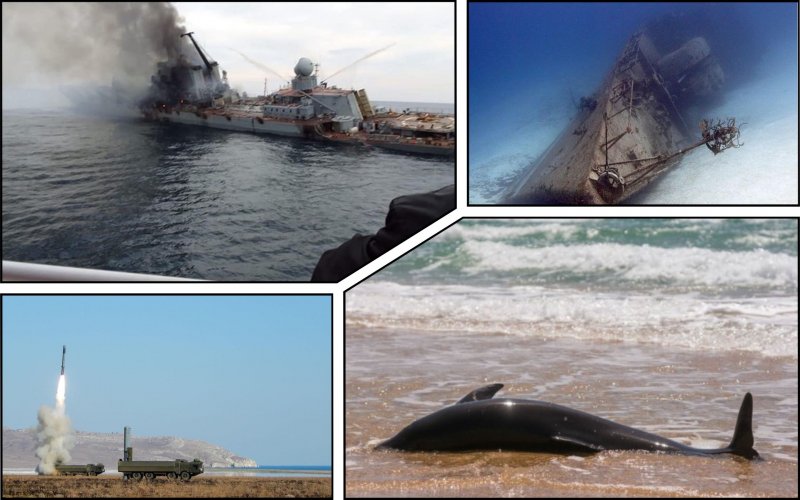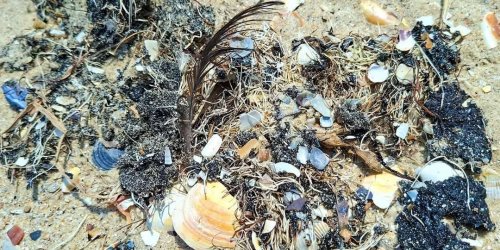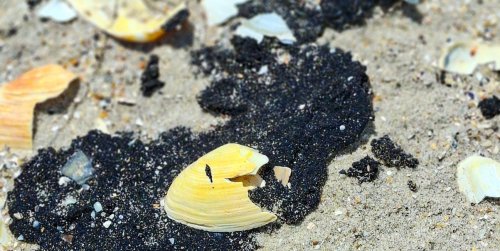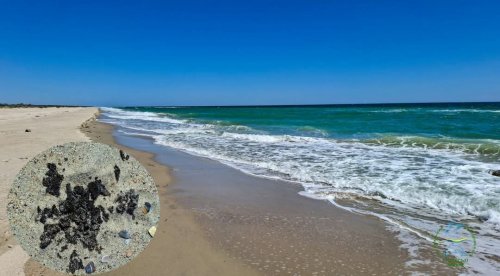Marine biologist Yevhen Dykiy stated that tons of heavy metals and other toxic substances, including from sunken ships and downed missiles, entered the Black Sea due to Russian military aggression.
During the last 20 years, thanks to the change in the structure of industry, heavy metals did not pollute the sea, he said on the air of Ukrainian Radio.
"Each "Calibre" or "Onyx" that manages to shoot down over the sea is also a huge amount of toxic organic matter. It means rocket fuel, which contains very toxic components and gets into the sea, which has never happened before," he said.
Dykiy emphasized that serious damage was also caused by the Russians' detonation of the Kakhovskaya HPP dam. After all, a significant amount of various substances, which for decades were deposited at the bottom of the reservoir, now got to the Black Sea and were carried away by the currents.
"So far, there is not even a physical possibility to trace how all this was further transmitted through food chains. Undoubtedly, this accumulation is taking place, but only after the end of hostilities will we be able to say exactly how much, what and where it went," the biologist explained.
He emphasized that it is currently impossible to determine the scale of pollution in Ukrainian waters. After all, this requires research and sample collection in the open sea, and the exit of scientific ships is very dangerous. However, scientists conduct minimal research "on shore", collecting tissue samples from dead fish and dolphins.
Dykiy noted that the water area of Romania, Bulgaria and the Bosphorus region of Turkey also suffer from pollution. Large-scale studies of the Black Sea could be carried out by European countries, but they are afraid of potential dangers, in particular sea mines.
The biologist also emphasized the need to create the correct methodology for assessing the ecological damage caused, so that compensation from Russia could be obtained later.
"No one had faced such a problem before. How can such large-scale damage to the sea be translated into money, how can it be valued? This is a very important task. Because after the war, we will have to help the sea recover. And without the correct method of assessing the damage, we will not be able to obtain compensation from Russia in international courts," Dykiy explained.
He added that the war had a positive effect on some living organisms, primarily Black Sea fish. For the second year in a row, they have not been caught and there is a rapid recovery of those species for which the key problem was not environmental pollution, but overfishing. For example, the Black Sea flounder, which was already on the verge of extinction due to very powerful poaching.
Earlier, EcoPolitic wrote, that in July the study showed that hundreds of tons of mussels (filtrate molluscs) died in the Odesa water area due to desalination as a result of the explosion of the Kakhovskaya HPP. About 50% of all mussels, which clean the water, died in the pool of the "Dog" beach near the shore.
As EcoPolitic previously reported, Russian scientists have confirmed the rapid increase in the salinity of the Sea of Azov, which has almost equaled the indicators of the Black Sea. In occupied Mariupol, the Russians blocked the rivers, which is causing an ecological catastrophe.





